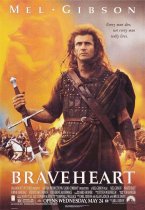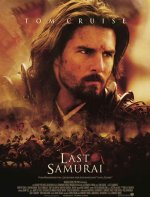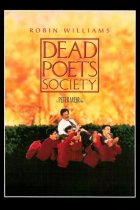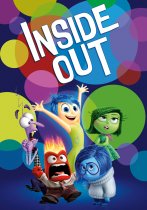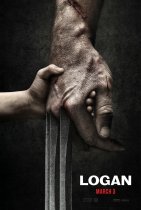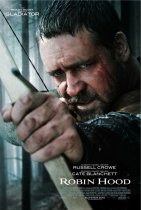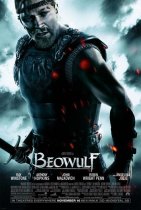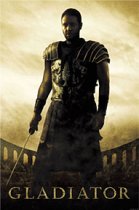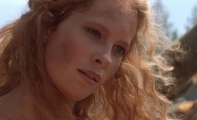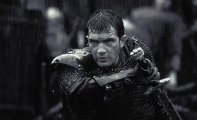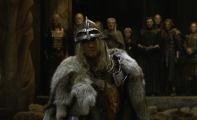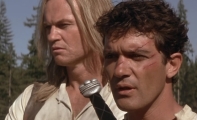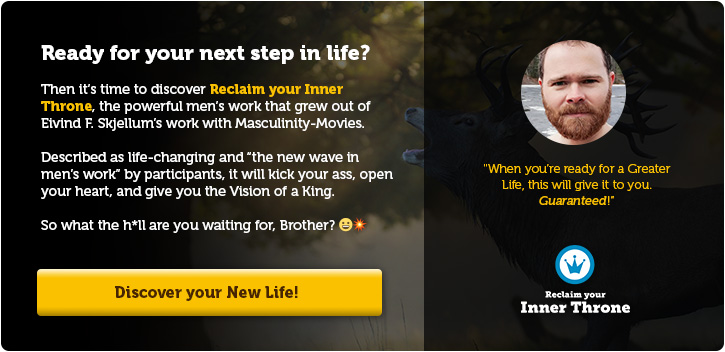The 13th Warrior (1999)
Synopsis
Ahmad Ibn Fadlan, a lover and a poet from an Arab nation is exiled when he falls in love with the beautiful betrothed of the wrong man. He is sent as an emissary to the North Lands, and there ends up in an encampment of drunken, dirty North Men. Soon after, he finds himself en-route to a village that is terrorized by foul creatures that devour human flesh. He is the 13th warrior, chosen to fulfill the prophetic vision of an oracle, and is about to meet with the adventure of his life. And on the way, he will learn to “become a man”.
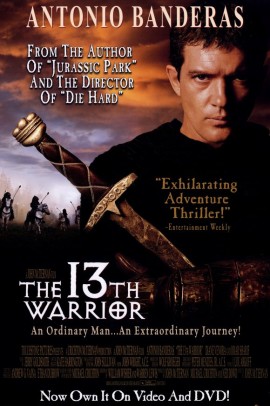
| Genre | Action, Adventure |
| Production year | 1999 |
| Director | John McTiernan |
| Male actors | Antonia Banderas, Omar Sharif, Dennis Storhøi, Vladimir Kulich |
Integrating the Warrior and the Lover
by Eivind Figenschau Skjellum
Ahmad Ibn Fadlan – or “Eben” as the North Men call him – is a man who adores beauty, poetry, God and the scriptures. He is by North Men standards a bit of a pansy, though he does ride a horse quite well. When a young boy shows up in the North Men tribe where Eben finds himself to bring word from a land in turmoil, their oracle is brought to read bones and see what may come to pass. “Thirteen warriors,” she calls out, “are needed for the mission.”
And one by one the brave men volunteer for the perilous task of absolving the forgotten lands from an ancient terror. The old King is dead, yet it is their new King Buliwyf who is the first of the men to volunteer. “The thirteenth warrior”, shrieks the oracle, “can not be one of us!” Good friend Eben freezes and realizes he has entered the wrong camp.
The next morning, the Vikings present him with a water bowl in which he is to wash himself, after they have all washed themselves with the same water. He is disgusted. He is a dainty man and does not appreciate the snot of his fellow brother. We discussed this scene in a film club I run on another community and I reminded them how important it is that a man gets to know his inner Wild Man.
This man is not finicky about hygiene, but is more grounded in the earth and the getting it done. I remember in my previous relationship that I would often do things that were disgusting by her standards, though I felt that they empowered me. Men and women are different that way. Eben is a bit effeminate. Yet I too would refuse washing my face in water where another bloke just emptied his nostrils.
Eaters of the Dead
After having made a name for himself by riding his horse like a warrior and learning the North Men language, Eben is somewhat more accustomed to the company of the savage men by the time they arrive at their destination. Already, a bond has started forming between him and Buliwyf. The land which meets them is a gray and desolate place, bereft of most its men of fighting prowess.
They are already dead, taken by the Eaters of the dead. We are reminded of the “women and children” first mantra. In times of war and danger, men always die first. It is part of our gender role – we are the expendable sex – something which is hardly acknowledged in today’s world, where women are always described as getting the worst end of the stick.
When the Eaters strike the first time, Eben is terrified. He is not a Warrior. “You will be soon!,” laughs Herger the joyous. He does survive, but a scratch on his face, and even gets one of them. But they return in force. The North Men suspect there is some supernatural force at play. The dead bodies of the Eaters disappeared after battle and when fire appears up on the hill from whence they came first time around, they shout “they have roused the fire serpent”. These truly are mythical lands.
The Eaters return in force and Eben enters a battle frenzy, loses himself and his old ways to bloodlust in the moment. He is not a Warrior and so does not remain grounded and focused in the moment of battle, though he is an able arm in battle already, especially after he got his Arabian scimitar cut at the smithy. Herger laughs at him “You got one? Don’t worry. There’s more!”.
Taking the battle to them
The brave king Buliwyf rouses his men – those who remain – to a counter-attack. Eben has turned into an important part of the group, for he is the man with talents of his own – as well as a big brain. There is a nice scene in which Eben rides out of the Viking village and the beautiful lass that he has bonded with strokes her arm against his leg as he rides out.
We know from earlier that Eben is fond of beautiful women, and we see his temptation to turn around and spend time with the fair-haired beauty. But he has discovered something new and perhaps even more important now: Brotherhood. He knows he cannot let his brothers down, leave them to their fates while he is frolicking with a woman. It’s simply not the way of a mature man.
They successfully raid the encampment of the enemy– who are a spooky and primitive sort of group – and Buliwyf slays their female spiritual leader. But he is poisoned by her before he gets her head. As his last hours are upon him, Buliwyf calls on Eben to write down the stories of his life, that it might be remembered. Eben is moved and recognizes, once and for all, the greatness of these fearless warriors. He agrees that such would be a worthy thing.
The final battle comes to pass – the male leader of the enemy must also be crushed for the enemy to be broken, and in the dark moments before battle, Eben kneels on the ground to pray: “God, Merciful Father, I have squandered my days with plans of many things . . . this was not among them . . . but at this moment, I beg only to live the next few minutes well”. Beautiful. He is asking his God for help in staying grounded and present in the moment. Male spirituality at its finest.
And so, with the calling on the forefathers and a homage to the Halls of Valhalla (which Eben beautifully partakes in), Buliwyf kills the general of the enemy with what remains of his waning life force. And so, more or less, it ends.
Conclusion
13th Warrior is a pretty light-hearted movie, but what strikes me about it is that it’s a good story for studying the Wild Man archetype, but perhaps more importantly the integration of the Lover and the Warrior archetypes in the KWML system.
Ahmad Ibn Fadlan was exiled because he lusted for the woman of another man. He is also a poet. Ergo, he is a Lover archetype. And then he teams up with a tribe of savage Warriors, who turn out to be noble at their core. What happens in Eben through this adventure is an integration of the Lover and the Warrior, particularly demonstrated through the relationship he shares with Buliwyf (a character who is a king, but whose archetypal function in the movie is of a Warrior King). It is a noteworthy theme and makes the movie a worthy watch.

